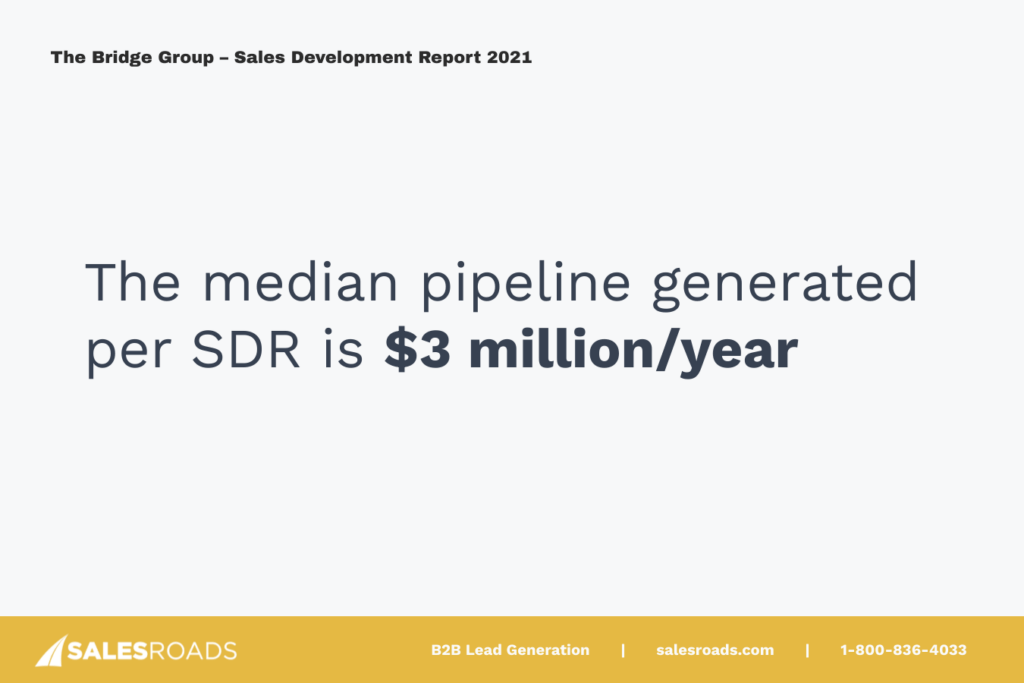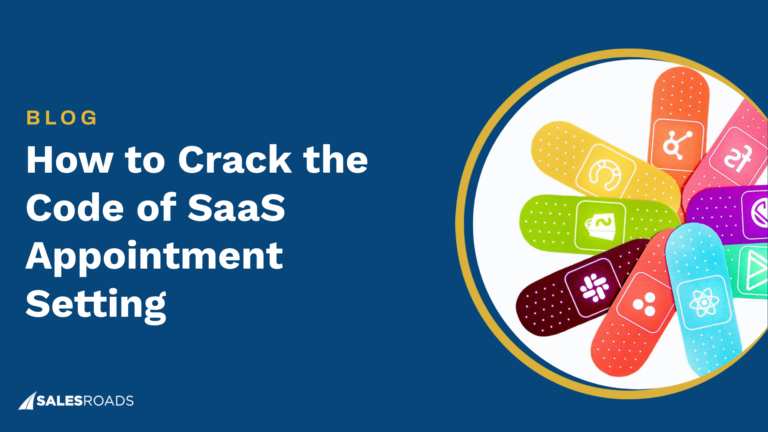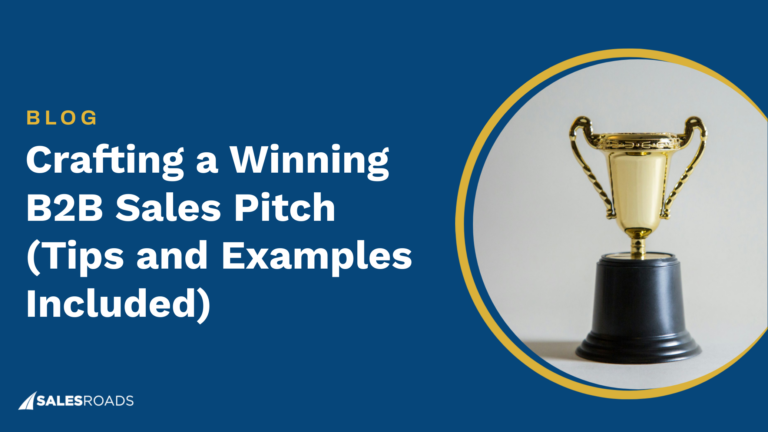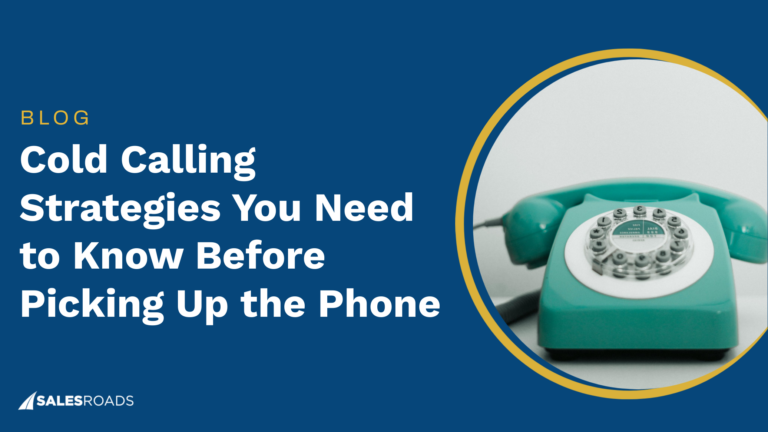Have you ever pondered, “What is an SDR in sales?” Sales development representatives (SDRs) are pivotal in high-performing sales organizations, playing a crucial role in driving business growth.
They serve as the initial touchpoint for potential customers, nurturing them throughout the sales cycle and converting them into qualified leads.
SDR meaning in sales comes in two strategic forms: inbound and outbound. Let’s explore the distinctions between them.
Differences Between Inbound and Outbound SDRs
Inbound SDRs meticulously cultivate leads who have already shown interest, often through the efforts of the marketing team. Outbound SDRs, on the other hand, are the vanguard of prospecting. They employ outreach efforts like cold emails and cold calls to connect with potential clients who may be unfamiliar with your product.
By incorporating both inbound and outbound SDRs, you establish a comprehensive sales strategy that addresses all stages of the sales pipeline, allowing Account Executives (AEs) to focus on closing deals and nurturing long-term client relationships.
Lead Source
Inbound SDRs are the initial point of contact for potential customers who have already expressed interest, often through marketing-generated marketing qualified leads (MQLs). Outbound SDRs, however, actively reach out to potential clients who may not be familiar with your organization. Through techniques like cold emails, they aim to generate interest and convert initial contacts into sales-qualified leads (SQLs).
Essentially, inbound SDRs nurture existing interest, while outbound SDRs cultivate new opportunities.
Sales Cycle Focus
SDRs play vital roles at distinct stages of the sales cycle. Inbound SDRs focus on qualifying inbound leads, ensuring that only the most promising leads are passed on to the sales team. Outbound SDRs concentrate on setting sales appointments, laying the groundwork for the sales team to delve deeper and ultimately close deals.
Performance Metrics
The metrics used to measure the success of inbound and outbound SDRs vary. Inbound SDRs are typically evaluated based on conversion rates, specifically the percentage of MQLs they qualify as SQLs. Outbound SDRs, on the other hand, are often assessed on outreach volume and connect rates, providing insights into their prospecting efforts and lead generation abilities.
By monitoring these key performance indicators, you can ensure that your SDR team effectively nurtures and converts leads throughout the sales cycle.
Why Outbound SDRs Are Your Sales Pipeline Powerhouse?
A robust sales pipeline filled with qualified leads is essential for business success. SDR meaning in business equals a strong pipeline full of opportunities.
The Bridge Group’s research unveiled that the median pipeline generated by each SDR amounts to $3 million annually. However, there’s substantial diversity across companies, with some generating under $750K in the pipeline, while others surpass $10M per SDR annually.

Outbound SDRs play a crucial role in fueling this pipeline by:
Increasing sales opportunities
Outbound SDRs are relentless cultivators of new business opportunities. Through their targeted outreach efforts, they identify potential clients who might be a perfect fit for your offerings.
This significantly increases the volume of leads flowing into your sales pipeline, ensuring a steady stream of prospects for your sales team to convert.
By consistently generating a stream of qualified prospects, outbound SDRs directly impact the health of your sales pipeline and fuel business growth.
Personalizing interactions with potential clients
Outbound SDRs possess the flexibility to customize their outreach efforts to target specific markets or ideal customer profiles (ICPs). This tailored approach enables them to engage potential clients on a personal level, resulting in more meaningful conversations and a greater likelihood of capturing their interest.
Picture an outbound SDR reaching out to a company perfectly aligned with your ICP. Through adept communication and active listening, they craft messages tailored to address the unique needs and challenges of that company. This personalized approach builds trust and positions your company as a relevant solution, ultimately boosting the conversion rate of these leads into sales.
Shortening sales cycles
By actively qualifying leads and nurturing their interest, outbound SDRs play a pivotal role in accelerating the sales cycle. This proactive approach reduces the time spent pursuing unqualified leads, allowing the sales team to focus their efforts on closing deals with engaged, qualified leads.
Outbound SDRs serve as a sieve, identifying potential clients genuinely interested in your offerings. This enables the sales team to concentrate on nurturing these warm leads, swiftly guiding them through the sales funnel. Consequently, this leads to expedited sales cycles, surpassing sales targets and fostering accelerated business growth.
Providing a competitive advantage
Outbound lead generation empowers your organization to take a proactive stance in the market. By reaching out to potential clients before competitors, you gain a significant competitive edge. Establishing your company as a thought leader in the industry positions you as the preferred solution for their needs, cementing your place ahead of the competition.
How to Hire an Outbound SDR? What to Look For?
Identifying the ideal candidate for the outbound SDR position involves assessing essential skills and alignment with your sales culture:
Essential Skills for Outbound SDR Success
Beyond the core requirements of the SDR position meaning, specific skills empower outbound SDRs to excel:
- Communication prowess: Outbound SDRs are the voice of your company during initial outreach. Strong communication skills, both written and verbal, are essential. They should be able to craft clear, concise, and engaging messages that resonate with potential clients. Active listening is equally important, allowing them to understand the prospect’s needs and tailor their approach accordingly.
- Emotional intelligence: Understanding and navigating human emotions is crucial for building rapport with potential clients. Outbound SDRs with high emotional intelligence can effectively connect with prospects, build trust, and overcome objections.
- Time management and organization: Outbound SDRs juggle multiple tasks and outreach efforts simultaneously. Excellent time management and organizational skills ensure they prioritize effectively, meet their sales targets, and maintain a steady flow of qualified leads.
Uncovering the Right Fit for Your Sales Culture
While a strong skill set is essential, it’s equally important to find candidates who align with your company culture:
- Passion for sales: Outbound SDRs thrive in a results-oriented environment. Look for candidates who demonstrate a genuine passion for sales and a desire to exceed expectations.
- Teamwork and collaboration: Outbound SDRs collaborate with marketing teams and sales reps to nurture leads and drive sales. Look for candidates who exhibit strong teamwork skills and a collaborative spirit.
- Learning agility: The sales landscape is constantly evolving. The ideal candidate possesses a strong learning agility, readily embracing new technologies, sales methodologies, and market trends.
- Proactive and self-motivated: Outbound SDRs are self-driven go-getters who take ownership of their success. They are proactive in their outreach efforts, consistently seeking new opportunities and exceeding their sales goals.
Bonus Tip: Assessing Outbound SDR Skills Through the Interview Process
Traditional interview questions often yield generic responses like “I’m a great communicator” or “I’m a team player.” These are difficult to evaluate. Behavioral interviewing techniques help you assess a candidate’s past behaviors to predict their future performance in the SDR role.
For example, to assess a candidate’s communication skills and ability to handle objections, you might ask:
“Tell me about a time you had to overcome an objection from a potential client during a cold call. What was the objection, and how did you address it?”
By asking questions like this, you gain valuable insights into the candidate’s thought process, communication style, and ability to navigate challenging situations. This can help you identify candidates who possess the specific skills and behaviors that will make them successful outbound SDRs.
Bottom Line
Having a clear understanding of SDR meaning sales, particularly the role of outbound SDRs, is the key to unlocking a powerful sales pipeline and fueling business growth. Outbound SDRs are the engine of your sales funnel, consistently generating qualified leads, streamlining sales cycles, and giving you a strategic advantage in the market.
To leverage outbound SDRs for peak sales performance, hire for the right skills, ensure cultural fit, and utilize behavioral interviewing.









